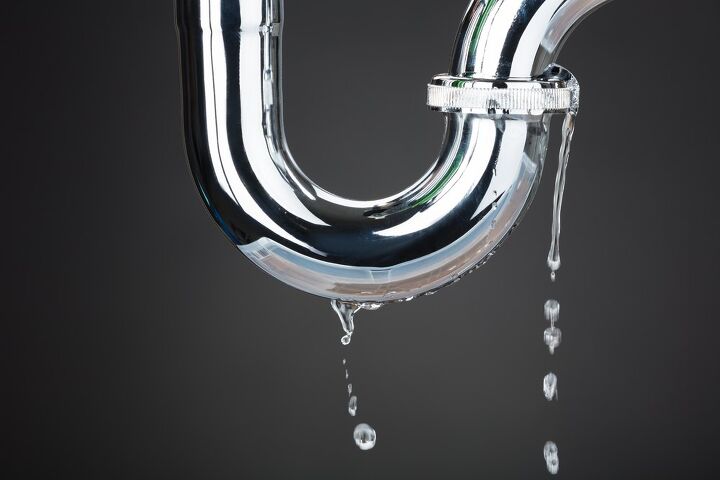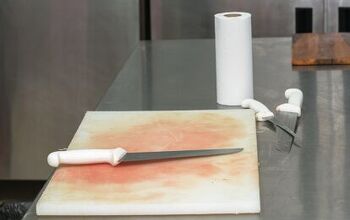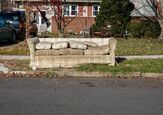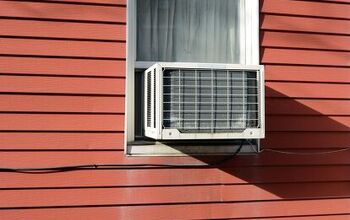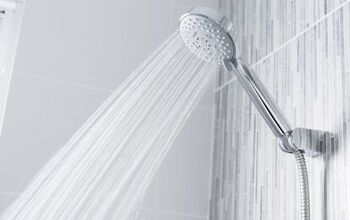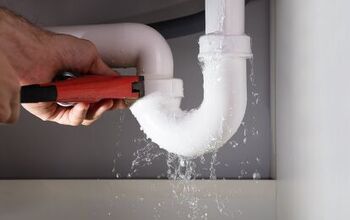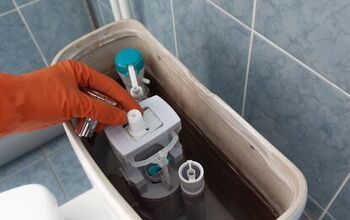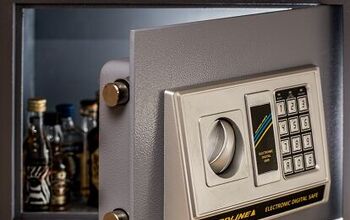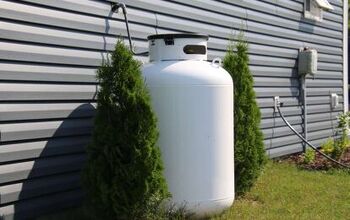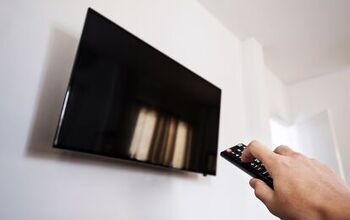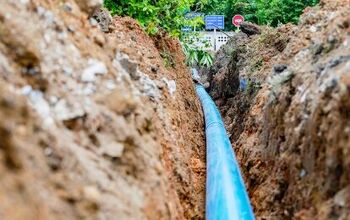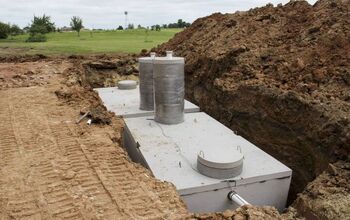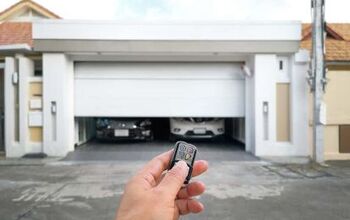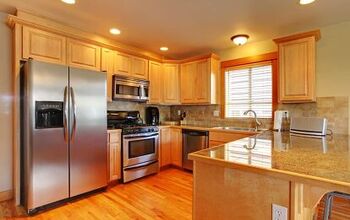Why Does It Sound Like Water Is Constantly Running?

Your plumbing pipes travel through your home, including behind your walls, above your ceiling, and under your floors. You’re literally surrounded by water and drain pipes at all times, no matter where you are in your house. As a result, you might notice the sound of water running nonstop but can’t pinpoint where it’s coming from.
If you hear the constant sound of running water, you likely have a damaged plumbing pipe or fixture. A leaky faucet or toilet, excessive water pressure, or a damaged valve are some of the reasons you might hear constant water. For the sake of your sanity and wallet, it’s essential that you get to the bottom of the issue.
In this article, we’ll look at the possible causes and fixes for the sound of constant running water in your home. You must catch this type of problem quickly and resolve the issue immediately.
Do You Need to Hire a Plumber?
Get free, zero-commitment quotes from pro contractors near you.

Why Does It Sound Like Water is Constantly Running?
Whether you’re in your bedroom, bathroom, basement, kitchen, or anywhere else in your home, you’re surrounded by plumbing pipes. If you hear the constant sound of water running in your home, it’s probably because there’s a leak or damaged plumbing fixture somewhere in your house. The good news is that you aren’t losing your mind and are starting to hear things. The bad news is that your problem could be challenging to find and fix.
There are two main sets of plumbing pipes in your home: water lines and drain lines. Water lines bring fresh water to various parts of your home, and drain lines carry wastewater out of it. If you hear the constant sound of running water, the usual suspect is that it’s somewhere in your drain lines. However, there are drains in your bathroom, kitchen, laundry room, and anywhere else that water runs to.
Each drain line connects to the same endpoint at the bottom of your home and exits the house together. This makes your plumbing system efficient, but it also makes it tough to pinpoint leaks. You’ll have to use your tracker skills to track down the exact starting point of the constantly running water. However, the list that follows consists of a few of the most common culprits to be on the lookout for.
Water Constantly Running in a Toilet
The most common reason people hear the sound of constant running water in their homes is toilet damage. Toilets are long-lasting plumbing appliances that operate with minimal moving parts. However, because of how much toilets get used, they’re prone to issues that result in water leaks. The good news is that leaks usually occur internally, and water doesn’t spill out onto the ground. Here’s what to check if you have a leaky toilet.
A Faulty Flapper
The flapper is located on top of your toilet in the toilet tank area. Whenever you flush your toilet, there’s a chain connected to the flapper that raises and lowers it to release water. When you’re not flushing the toilet, your flapper is in the down position to keep water from flushing. Flappers are made of rubber and are prone to wear out over time.
If your flapper has cracks or creases in it, it won’t be able to keep water from flushing down your toilet nonstop completely. Luckily, flappers are cheap and easy to replace, and you would be advised to do so immediately.
A Flapper Chain That’s Too Tight
When you push your toilet flushing lever, there’s a chain that raises the flapper, allowing water to flush down the toilet drain. If the chain is too tight, your flapper won’t be able to completely close. The result is that you’ll constantly hear the sound of water trickling down your toilet drain pipe. You’ll have to loosen the chain or purchase a new one to remedy the issue.
Water Level is Too High
Your toilet also contains a fill tube inside of the tank. When you flush your toilet, you’re losing a large amount of water that must be replenished before you can flush again. The fill tube is tasked with the job of refilling the tank after each flush, and there’s a special float attached to the tube that closes the tank when enough water has entered.
However, if your float is set too high, your water level will also be too high and will drain out through the overflow tub located next to it in case of an overflowing toilet tank. You’ll have to lower the float in your tank to restore order and balance to your toilet.
A Faulty Fill Tube
If you’ve checked everything else, including the flapper, float, and water level, your fill tube may have gone bad. A fill tube is more complicated to repair, and you should contact a plumbing professional immediately.
Excessive Water Pressure
Each of your plumbing appliances and faucets is equipped with internal valves. These valves are what give your faucets the ability to release water and shut it off instantaneously. Appliances that receive water, such as dishwashers, washing machines, and ice makers, also have internal shut-off valves.
Most internal valves on appliances and faucets are designed to handle water pressure up to a certain point. If there’s a problem, however, and your water pressure is abnormally high, there’s a good chance that it will bust the internal valves of your faucets and appliances. The result is that water will constantly be running and draining down your drain pipes.
Damaged or Cracked Pipes
The constant sound of running water could also be the result of something more severe. For example, if the sound you hear is more of a dripping than that of a trickling, you’ve got a potentially bigger problem on your hands. Constant dripping noises are usually the result of cracked or leaky pipes that are releasing water into your home.
Fiding the exact location of the leak is extremely difficult because many of your water pipes are located behind walls and ceilings. No matter how difficult it is, however, it’s crucial that you get to the bottom of your leak before it causes mold or water damage.
Slow Drainage
A possible explanation for the sound of running water is simply that you have slow drain lines. Slow drain lines are usually the result of improper installation or clogs. Either way, you shouldn’t hear constant running water, but the sound will last longer than normal. As long as the clog doesn’t get worse and you can live with the sound of water, a slow drain isn’t a major concern.
A Cracked or Leaky Faucet
Faucets, like all other plumbing fixtures, aren’t meant to last forever. With enough time and use, most faucets will give out and need to be replaced. If you have a cracked or leaky faucet and don’t realize it, you’ll likely hear a constant sound of running water. This happens because water is leaking into your sink or tub and slowly but constantly running down your drain pipes.
Related Questions
How can I tell if there’s a water leak behind my walls?
Because many of your water pipes are located behind your walls, it’s difficult to tell when one of them is leaking. The best way to watch out for leaks behind your wall is to check for water damage at the bottom of the wall. Outside of that, you’ll have to cut a hole in your wall to inspect the pipe behind it.
What’s the most common reason for constant running water?
The most common reason for the constant sound of running water is a faulty toilet component.
Do You Need to Hire a Plumber?
Get free, zero-commitment quotes from pro contractors near you.

Final Thoughts
No matter what the reason is, the constant sound of running water is a nuisance. Not only can it drive you crazy, but it can also be quite expensive on your water bill. It’s important that you catch issues of running water early and have the problem fixed before it can worsen. By running through the checklist above and contacting a plumber, you can avoid unwanted running water.

Before I started writing, I worked for 6 plus years in the plumbing, electrical, and HVAC business. I was primarily an HVAC installer but also worked as a plumber and electrician. Now I'm a copywriter, focusing on home improvement content and guides.
More by Jalin Coblentz



